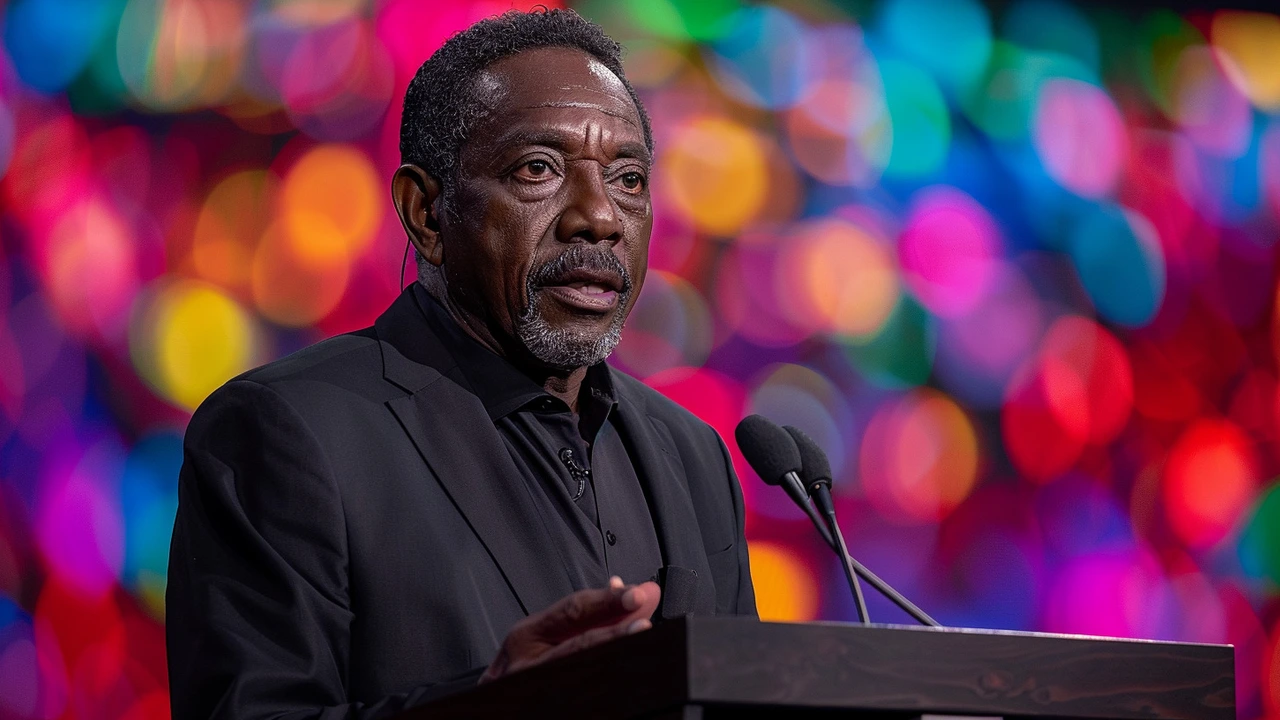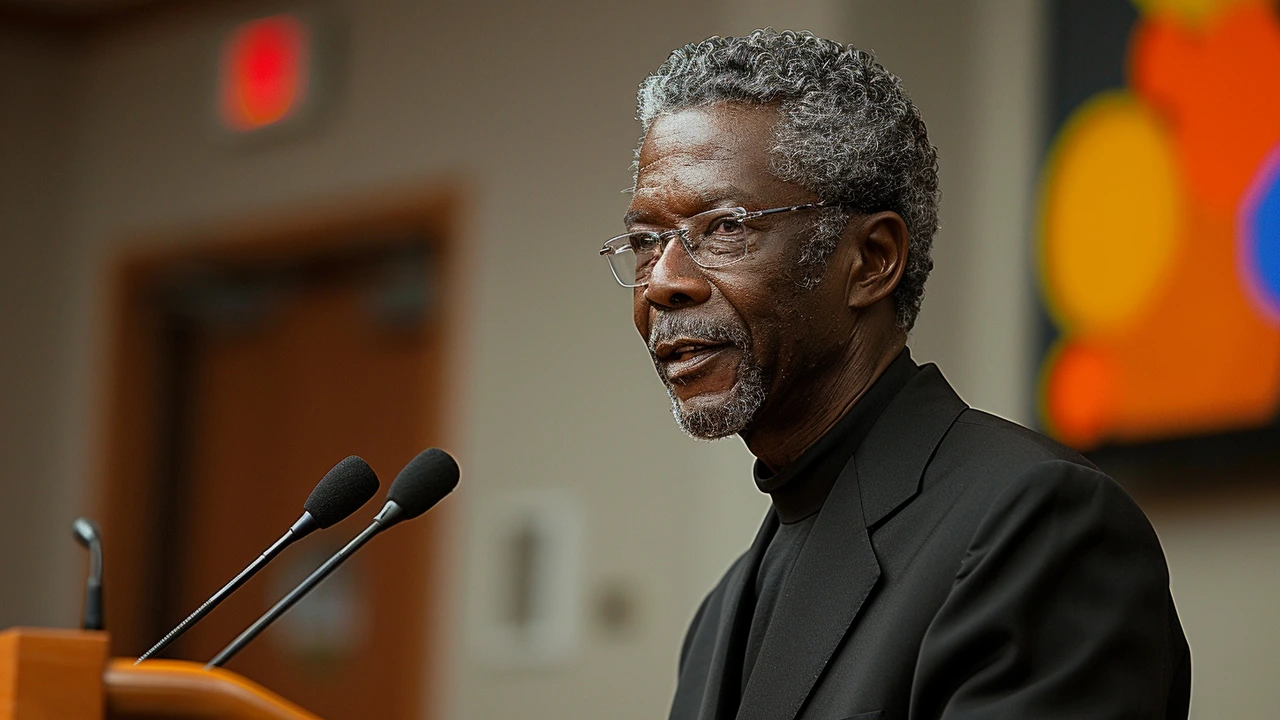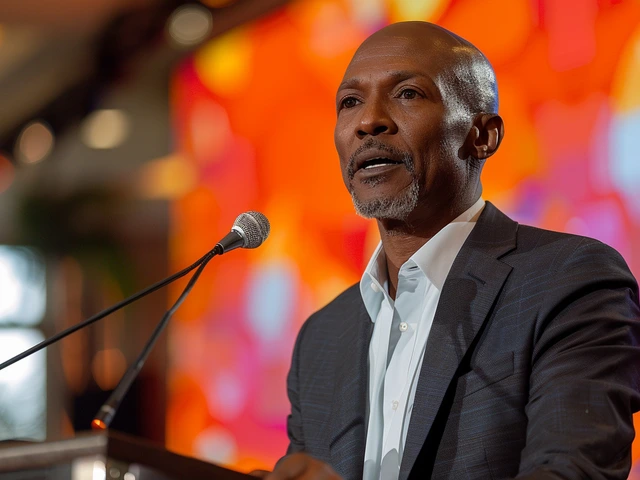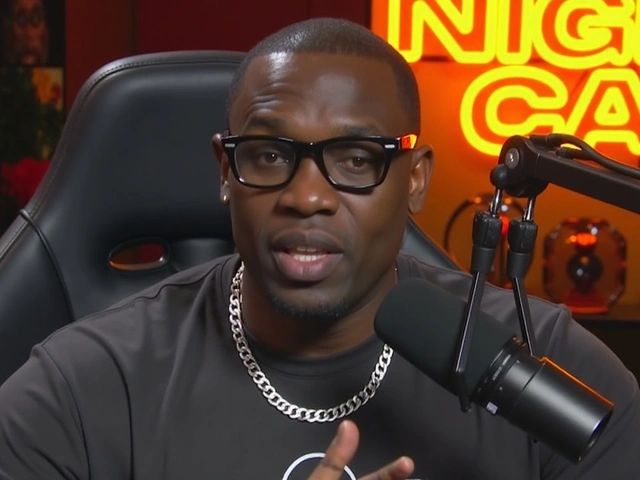In a significant political reversal, Gayton McKenzie, the leader of the Patriotic Alliance, has publicly apologized for supporting Renaldo Gouws, a Member of Parliament from the Democratic Alliance. The apology came after mounting evidence suggested that Gouws, who had previously been condemned for sharing a racist video over a decade ago, continues to harbor and express racist views.
The controversy started when Gouws was sworn in as an MP despite his past behavior becoming a point of significant public outrage. The initial video, which emerged many years ago, features Gouws making racial slurs that have provoked backlash from various political and social groups. The Economic Freedom Fighters (EFF) have been particularly vocal, calling for Gouws to be stripped of his parliamentary title. They argue that his actions go beyond the scope of a youthful mistake and indicate a deep-seated penchant for stoking racial hatred and perpetuating false narratives about farm murders in South Africa.
Initially, McKenzie was one of the few who came to Gouws’s defense. Drawing from his principles of redemption and the belief that people can change, McKenzie condemned the idea of 'canceling' someone based on past mistakes. He advocated for giving individuals the chance to demonstrate that they have evolved and their perspectives have matured.
However, McKenzie's position took a sharp turn when he was confronted with more recent evidence. A new video surfaced which clearly showed Gouws continuing to espouse racist views, undermining any claims of personal growth or transformation. This revelation prompted McKenzie to reconsider his stance and, ultimately, issue a public apology.
“I was wrong,” McKenzie admitted, expressing regret for defending Gouws without fully understanding the extent of his current beliefs. He acknowledged that his initial sentiments were misguided and emphasized that his apology came from a place of sincere disappointment and newfound awareness.
Renaldo Gouws Amid Ongoing Scrutiny
The backlash against Renaldo Gouws has intensified as more details emerge about his controversial past and present actions. The initial racist video, which caused the uproar, shows Gouws making offensive comments that have no place in contemporary society. While some may argue that the actions of one's youth should not define their future, the uncovering of recent behavior that aligns with these past transgressions suggests a troubling continuity.
The EFF has been particularly vocal, asserting that Gouws’s presence in parliament serves as a stark reminder of unresolved racial issues in the country. They contend that his role as an MP is untenable given his history and apparent lack of remorse. “Renaldo Gouws has not only shown a persistent attitude of racial hatred towards Africans but continues to spread harmful and false narratives about farm murders,” the EFF stated in a recent press release, underscoring their position on the matter.

The Dynamics of Political Redemption
Gayton McKenzie’s initial defense of Gouws was rooted in an understanding of political redemption. McKenzie, who has himself faced criticism and controversy over the years, championed the belief that redemption is possible and that individuals should not be eternally judged for their past mistakes. This perspective is not uncommon in political spheres, where the capacity for change and growth is often highlighted as a path to personal and professional evolution.
Yet, the case of Renaldo Gouws complicates this narrative. The new video confirming that Gouws persists in his racist worldview challenges the notion that people necessarily progress from their past transgressions. This raises critical questions about the authenticity of personal change and the criteria society should use to measure it.
For McKenzie, the realization that his support was misplaced was a harsh lesson in the complexities of human behavior and morality. His apology indicates a deeper understanding of the impact that public figures have on societal values and the importance of holding them accountable, not only for their past actions but also for their current beliefs and conduct.

Public and Political Reactions
The public reaction to McKenzie’s apology has been mixed, reflecting the polarized nature of contemporary politics. Some have praised McKenzie for his willingness to admit mistakes and change his stance based on new evidence. They see his apology as a demonstration of accountability and integrity, qualities that are often lacking in political discourse.
Others, however, remain skeptical. They argue that McKenzie should have taken a more cautious approach initially, especially given the gravity of the accusations against Gouws. Critics contend that McKenzie’s initial defense highlights a broader issue within politics: the tendency to excuse problematic behavior for the sake of ideological or partisan alignment.
Regardless of where one stands, the episode underscores the importance of diligent scrutiny and ongoing evaluation of public officials. It serves as a reminder that politicians, much like everyone else, must be held to account not only for their historical actions but for their present and future conduct.
The Road Ahead
As the controversy surrounding Renaldo Gouws continues to unfold, one thing remains clear: the intersection of past behaviors and present convictions cannot be ignored. While redemption and change are noble concepts, they require tangible proof and sincere effort. Public officials must demonstrate, through actions and words alike, that they have indeed moved beyond past prejudices and wrongdoings.
For Gayton McKenzie, this episode has been a sobering experience. His apology marks a pivotal moment in his political career, illustrating the challenges inherent in navigating the complex landscape of morality, redemption, and accountability in public life. It also serves as a cautionary tale for others, emphasizing the need for careful consideration and critical evaluation in a world where past missteps are often just a digital trace away from resurfacing.
In conclusion, while the prospect of change and redemption remains a key thread in the fabric of political and social discourse, it must be accompanied by accountability and genuine transformation. The case of Renaldo Gouws provides a poignant example of how these principles play out in the real world, reminding us that the journey from past mistakes to present virtues is fraught with challenges and complexities that cannot be overlooked.




9 Comments
Write a comment